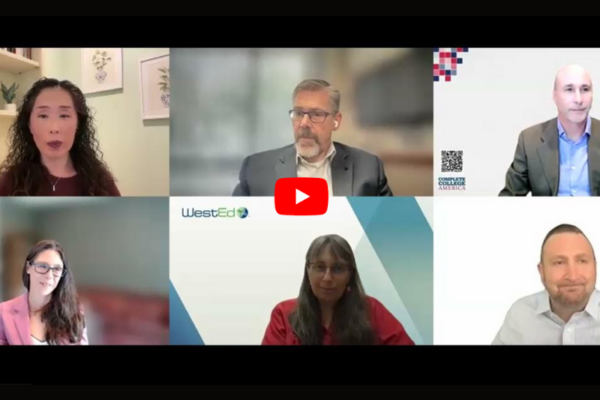In the early 2010s, a broad coalition of stakeholders launched one of the most impressive reform movements in American education: fixing college remedial education.
For decades, hundreds of thousands of entering college students—including more than half of community college students—had been relegated to “developmental” courses in reading, writing and basic math that few managed to finish, offered no college credit, and often saddled them with debt. The advent of reform led to successful strategies that helped many students clear the remedial education hurdle.
Nevertheless, far too many students remain stuck in the quagmire of traditional remedial ed, while the academic disruption of the pandemic has left untold numbers of high school students without foundational skills. Absent a renewed push for reform, the consequences could be devastating for college completion and social mobility.
FutureEd and the HEA Group hosted this webinar to explore the current state of college remedial education, the successes of reform to date, and keys to future progress. The panel featured Tristan Denley, deputy commissioner for academic affairs and innovation at the Louisiana Board of Regents; Amy Getz, senior program associate at WestEd; Melinda Karp, founder and principal of Phase Two Advisory; and Brandon Protas, assistant vice president for alliance engagement at Complete College America. Anne Kim, FutureEd senior fellow and author of Incomplete: The Unfinished Revolution in College Remedial Education, moderated the discussion. Opening remarks were given by Michael Itzkowitz, founder and president of the HEA Group.
Additional Resources
FutureEd’s work:
- Incomplete: The Unfinished Revolution in College Remedial Education
- Getting College Remediation Reform to the Finish Line
Resources from the panelists:
- New placement approaches in broad-access institutions
- Using placement for broader institutional transformation
- No Room for Doubt: Moving Corequisite Support from Idea to Imperative
- Corequisite models at the University System of Georgia
- Remediation: Higher Education’s Bridge to Nowhere
- Corequisite Remediation: Spanning the Completion Divide
